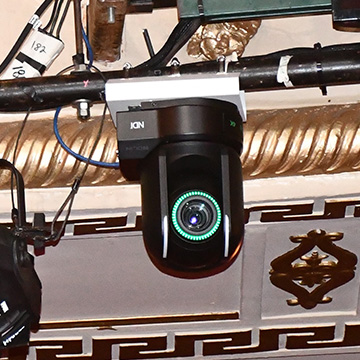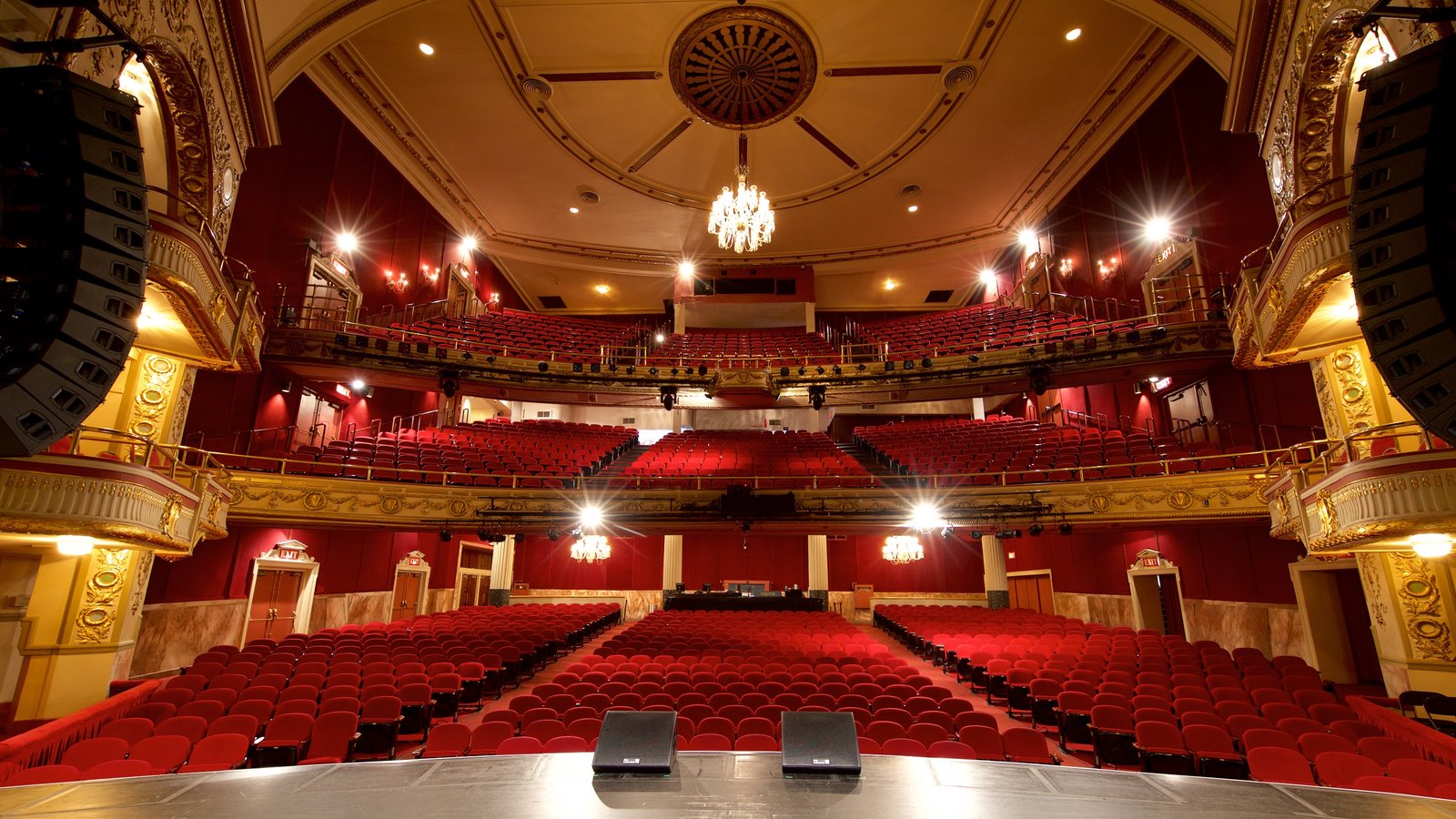KMH Integration is helping two landmark New York City theaters expand their audiences in the digital age. The firm has completed upgrades to the AV technology infrastructures at the Pregones Theater and the Apollo Theater, creating new production workflows.
The Brooklyn-based systems integrator is providing AV consulting services, engineering oversight, onsite project management, and technical training. KMH also installed a range of new remote technologies across the multiple facilities operated by each organization, including KMH’s new Marquee Pro content streaming solution.
[Viewpoint: Hidden Safety Concerns Should Be Top Priority for Event Productions]
KMH’s relationships with the two theaters resulted from the Digital Accelerator Program, a new initiative conceived by Bloomberg Philanthropies in 2021. The theater and live event industries were among the hardest hit by the COVID-19 pandemic. The program was developed to support the economic recovery of U.S. and U.K.-based cultural nonprofit and arts organizations, many of which were designated as cultural and historical landmarks. Bloomberg Philanthropies allocated $30 million to restore and preserve these venues, help them invest in tools and training, update their digital technology infrastructures, expand their audiences, and build toward future growth.
A selection process for systems integrators knowledgeable in live production and performing arts spaces led to KMH working with the Apollo and Pregones teams. While each theater had unique goals and levels of production capabilities, both also had similar needs that made an online platform like Marquee Pro an ideal fit.

The system is based on an NDI and Dante-compliant streaming control center using SRT and WebRTC protocols with QoS monitoring. The service also includes a fully customizable, portable studio set designed by KMH partner Creative Dimensions. The pre-fabricated studio wall panels are built for easy assembly and portability, supporting different graphic overlays as backdrops as well as a chromakey greenscreen background.
“We’re helping them do their own internal TV production with an added external digital distribution platform,” said Kevin Henneman, president of KMH Integration. “It’s an easy-to-use, high-quality option for sending video streams between each theater, or for remote productions to complement their in-theater events."
In 2022, KMH began working with the Apollo, an American cultural treasure and a vibrant nonprofit organization that is rooted in the Harlem community, but speaks to and welcomes people from around New York, the nation, and the world. The Apollo currently has three stages: the Historic Theater, Soundstage, and Digital Stage. Opening soon is the Apollo’s Victoria, which will include two new theaters.
The Marquee Pro system is integrating the Historic Theater and Soundstage on the Apollo’s intranet, allowing programming and content to be streamed and shared easily among each area. KMH built a centralized control room, allowing the organization to stream programming directly from each theater to support multiple independent productions or one large Apollo event. Because the audience is an iconic part of the Apollo experience, KMH was consulted regarding camera selection and placement, so broadcasts in both spaces captured an immersive experience of both the stage and audience.
“KMH has been integral to helping the Apollo achieve its goals,” said Kersten Stevens, the Apollo’s director of digital strategy and Bloomberg Digital Arts Accelerator tech fellow. “The greatest benefit of working with KMH has been their ability to focus in on our objectives and deliver a system we could truly trust not only as state-of-the-art, but also as a system that could expand and deliver against our needs as the theater’s stages, technical needs, and streaming opportunities increase.”
The Pregones/Puerto Rican Traveling Theater (Pregones/PRTT) is a multi-generational performing ensemble and multi-discipline arts presenter, which operates bilingual arts facilities in the Bronx and Manhattan. Founded in 1967, it was one of the first bilingual theater companies in the United States. At each of its locations, Pregones/PRTT hosts a range of events, from plays to film festivals to musical acts.
[Renkus-Heinz, Salvation Army Reimagine Hollywood Golden Age Theater]
KMH’s work with the Pregones theaters began with similar goals: connecting multiple venues and reaching larger external audiences using an automated online production workflow. Before this current project started, the PRTT main infrastructure was mostly limited to internal use. With the Marquee Pro solution, as well as new workflow technologies, the Bronx and Manhattan theaters are now able to interoperate with audio, video, and control signals. The system allows for acquisition of a performance, which can then be edited and posted on its social media venue platforms.
“Since we started working with the KMH team, I can’t say enough about them,” said Jorge Merced, associate artistic director, Pregones/PRTT. “They have been thorough in understanding the needs of our project and designing solutions that fit our venues and program goals beautifully. The integration has been seamless and very successful."
[KMH Integration Updates JPMorgan Chase with Cutting-Edge Technologies]
The systems designed for Pregones and Apollo are built with the flexibility of being either a permanently installed or mobile production solution, depending on each theater’s needs. “We are designing and implementing mobile production packs,” Henneman explained. “Instead of anchoring a fixed rack, it's a ‘road case on wheels’ to augment the in-theater performances with outdoor events. We've designed it to operate as a mobile system that uses the internet for delivery and remote connectivity.”
KMH is able to monitor and manage signals from its Brooklyn office to coordinate troubleshooting and provide quality control. “Upgrading the AV technology in venues that are decades-old is challenging enough, but doing it while maintaining the aesthetic integrity of a landmark institution raises the stakes even higher,” said Henneman. “It’s a delicate balance between maintaining their legacy and helping them build toward a digital future.”
